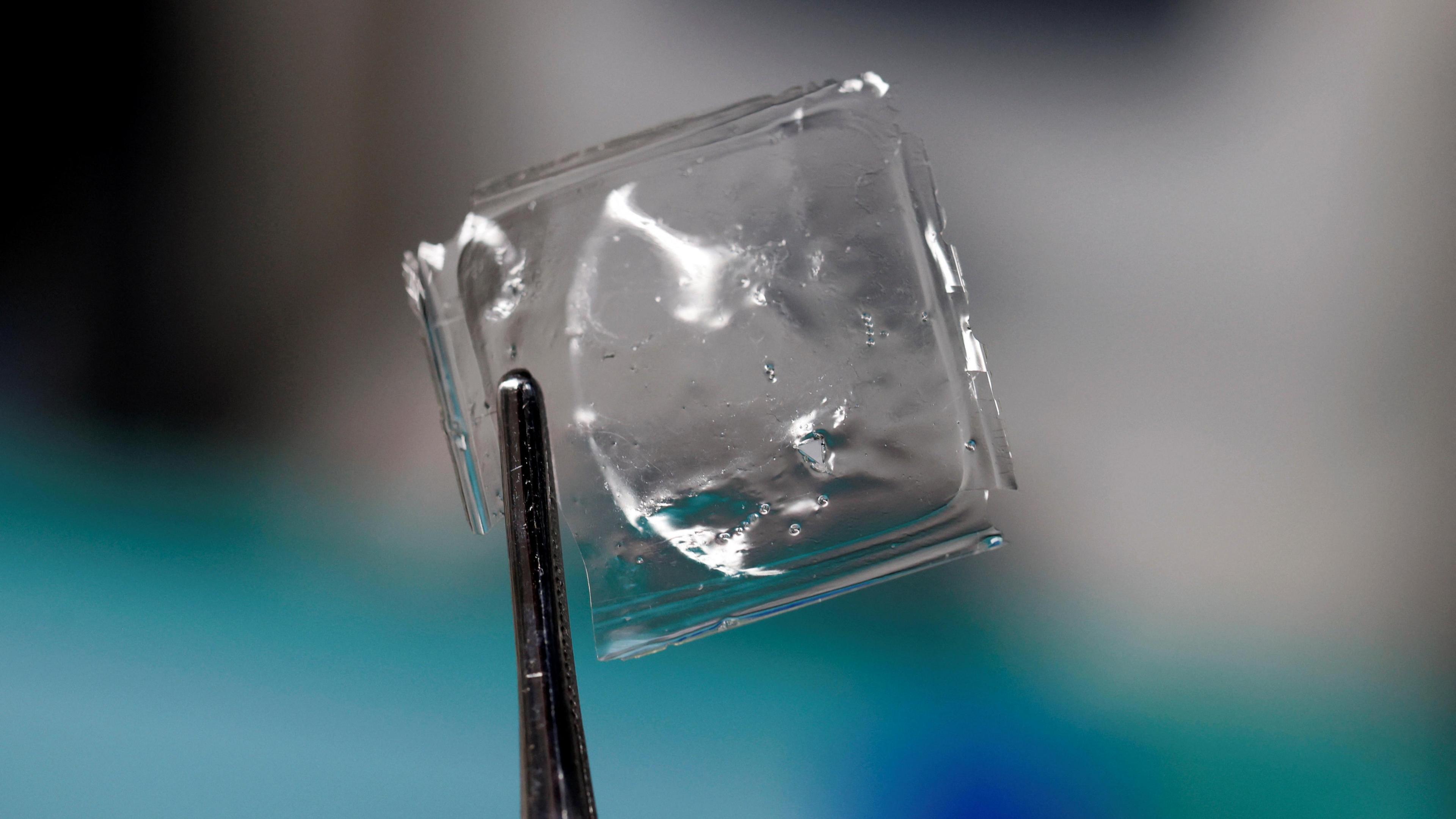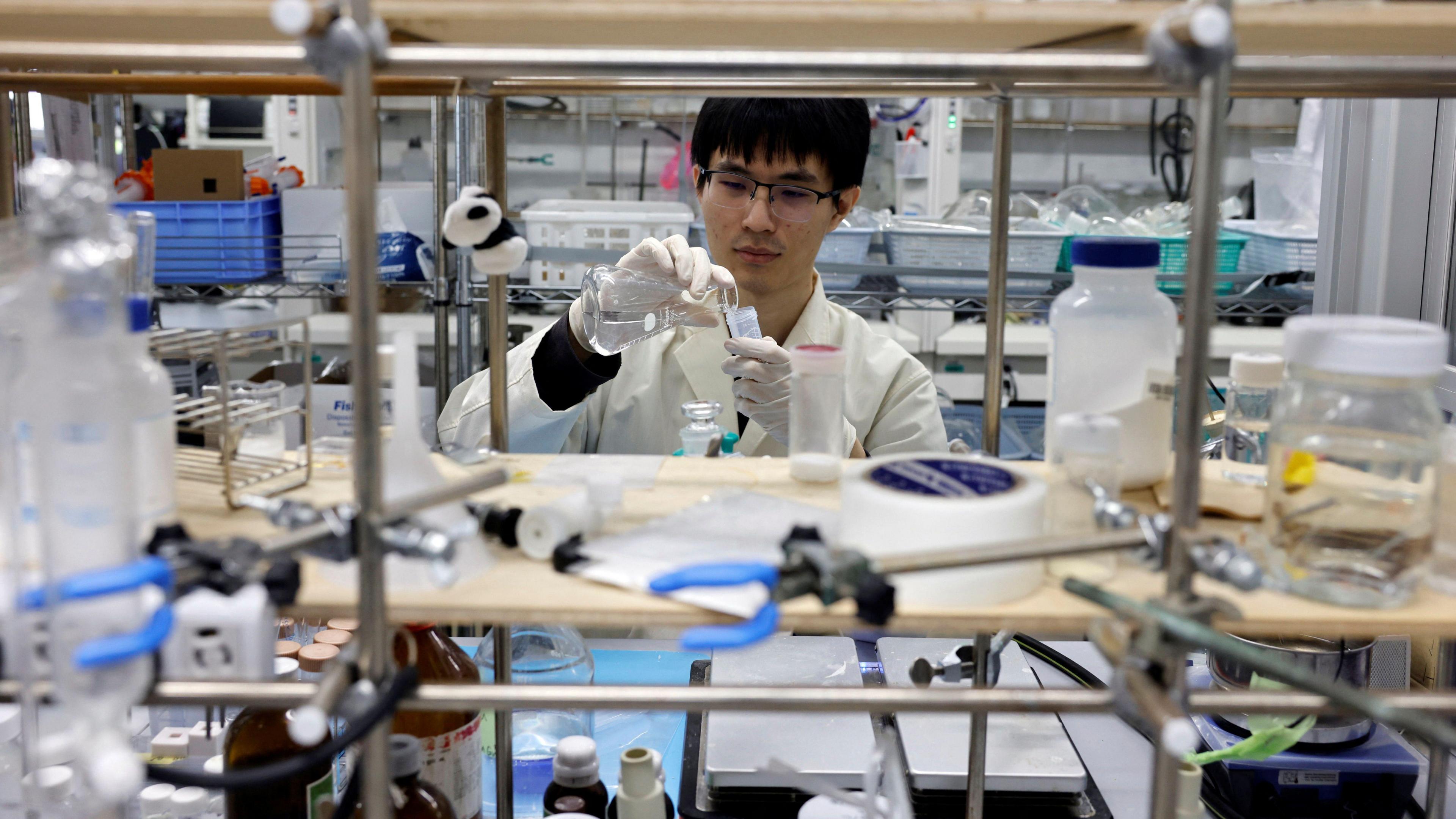Scientists develop plastic that dissolves in seawater

- Published
Scientists in Japan have developed a plastic that dissolves in seawater.
Experts say the new material breaks down quickly in around two to three hours, depending on its thickness and size.
Many existing biodegradable plastics aren't able to fully dissolve, leaving behind harmful microplastics that can pollute the ocean and harm wildlife.
But it's hoped that the new non-toxic material could offer a future solution as it disappears completely.
More like this
- Published4 days ago
- Published27 May
- Published6 days ago
What have scientists developed?

The new plastic was co-developed by the University of Tokyo in Japan and the country's RIKEN Centre for Emergent Matter Science (CEMS).
Researchers say it is made by combining two small molecules which form a strong bond that allows the new material to stay tough and flexible.
While scientists have long experimented with biodegradable plastics, the team say their invention breaks down much more quickly and leaves no trace.
When placed in a mixture which had the same amount of salt as seawater, they found the new plastic dissolved "quickly in about two to three hours, depending on its thickness and size."
And it's not just in water where the new plastic can dissolve.
Takuzo Aida, lead researcher at CEMS, explained: "Similarly, when tested in soil..a piece of plastic about 5 centimetres in size, it completely disappears after a little over 200 hours."

Plastic pollution is a big global problem, with experts at the UN Environment Programme (UNEP) saying the amount of waste is set to triple in the next 15 years.
Recent studies have shown the damage microplastics cause as they pollute the environment and create health problems for animals, because they can be easily eaten.
The new plastic is still in the early phase of development but Mr Aida said their research has attracted a lot of interest, including from those in the packaging sector.
He added: "In Japan, almost all packaging is made of plastic, and if we can really manage to reduce that, we can expect less environmental damage."
Currently, less than 9% of global plastic waste is successfully recycled.
